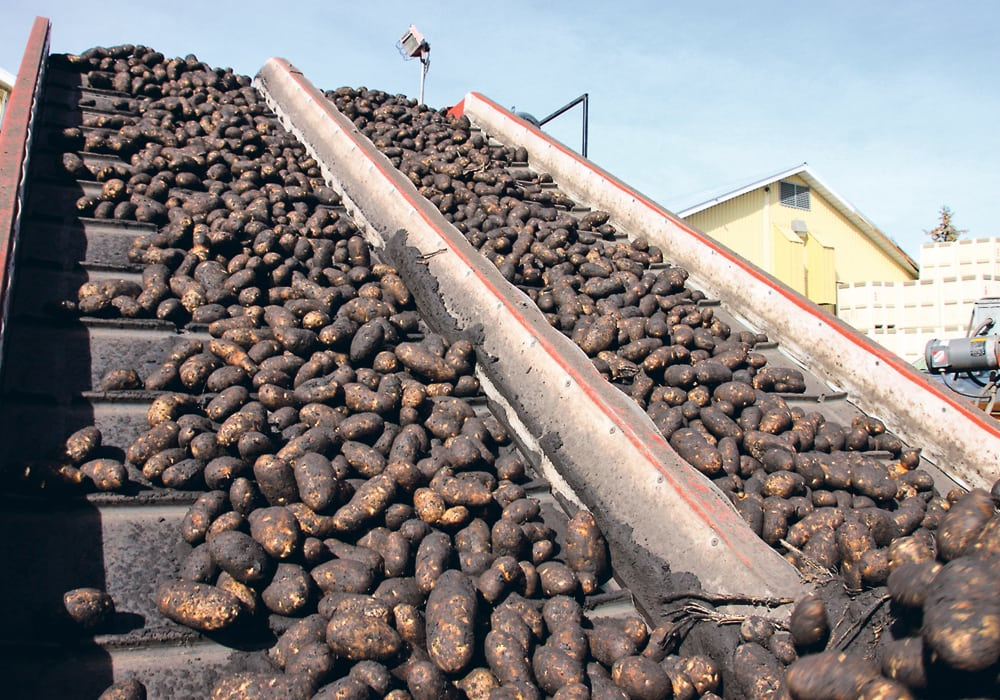Alberta is one of the largest potato production areas in Canada and new research from the University of Lethbridge is aimed at keeping it that way by examining early detection of pathogens.
Researcher Dmytro Yevtushenko said his study will develop molecular protocols to detect pathogens and parasites that can damage provincial potato crops.
Those include verticillium, fusarium and spongospora that can cause scabbing in potatoes. His research will also include a survey for parasitic nematodes.
“Fusarium is one we are paying attention to. It’s especially important in storage because it can cause dry rot in potatoes,” said Yevtushenko.
Read Also

Using artificial intelligence in agriculture starts with the right data
Good data is critical as the agriculture sector increasingly adopts new AI technology to drive efficiency, sustainability and trust across all levels of the value chain.
The research is part of wider efforts to combat economic loss in the burgeoning potato industry in southern Alberta, which is expected to grow with expansion of the McCains processing facility and expanded irrigation networks.
But with that growth of potato acres comes the potential for growth of diseases that can affect them.
“We want to help local potato growers and provide diagnostics for potato diseases in a very fast and reliable manner, so they won’t have to send their soil or plant samples for analysis somewhere else. They can do it locally in southern Alberta,” he said.
The speed factor of getting results is especially important to protect one of Canada’s best growing areas for potatoes with the highest yields, said Yevtushenko.
There are some systemic advantages as well with provincial crops to protect them from agricultural diseases and pests.
“We have a relatively wider rotation cycle with five-plus years for crop production for potatoes, which means disease spread is relatively low in Alberta,” he said. “But we still have diseases, which is why we want to provide these diagnostics.”
Early diagnosis of potato diseases will also help lower costs of herbicides, he added, while less use of them will also help prevent development of resistance while also being environmentally beneficial.
The research will be focused on the DNA analysis of soil samples to detect potentially harmful material that could impact crops.
Currently, such testing requires sending samples out of the province, which takes time and can be expensive.
The project is one of several awarded funding through the Agriculture Funding Consortium, which is financially supported by Alberta’s Results Driven Agricultural Research (RDAR), the federal government and several prairie producer organizations.
In addition to the $200,000 being provided to Yevtushenko’s research, another $50,000 from the fund will go toward research at the U of L to test water-use efficiency in Alberta potatoes used for chips and french fries.
















